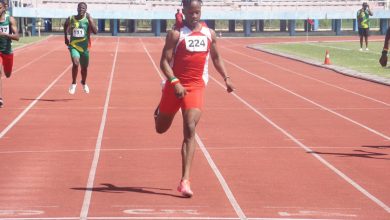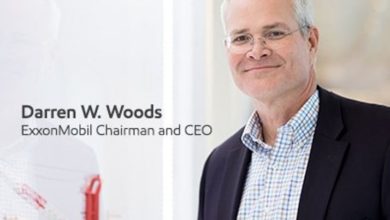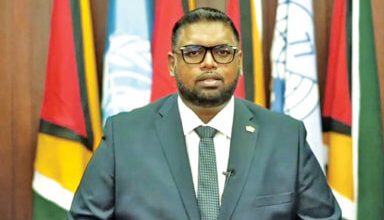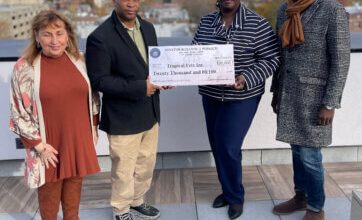Disability advocates make clear: Accessibility is everything
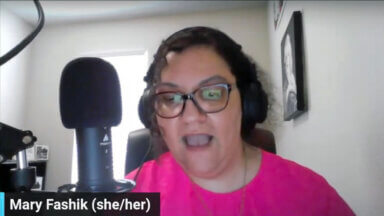
During the 2023 Accessibility Conference held virtually from April 25 to 27, hosts Mariella Paulino-Peralta, Adrianna Mallozzi, and other disability advocates shared why accessibility is important, as well as tools, technologies and best practices for the community and its allies to keep in mind when thinking about it.
Paulino-Peralta is hard of hearing (HoH) and Mallozzi, has cerebral palsy (CP). Mallozzi is also the founder and CEO of Puffin Innovations.
The first session I attended on day one was led by Mary Fashik, who has CP and is the founder of Upgrade Accessibility. She discussed the history and importance of intersectionality within the community regarding disability rights. Learn more about CP here: https://www.cdc.gov/ncbddd/cp/index.html.
Fashik shared how she didn’t see herself represented in the media as a brown girl who was born in Lebanon. “Growing up in the 1980s, I watched the TV show Facts of Life, and the only disabled representation I saw was Blair’s cousin,” she said. “Yes, she had cerebral palsy, yes, she had impaired speech, yes her disability was very apparent, but she walked and she was white, not the same brown girl that I was.”
In this reference, she emphasized racism and ableism being inherently tied together as tools of white supremacy. “We will never move forward as a community, as a movement, if we do not include and center those who are most marginalized,” Fashik added.
“We must all acknowledge our privilege and if we’re going to move forward we are acknowledging our privilege, centering those who are most marginalized, and meeting everyone at their intersection because again, disability intersects at every identity,” she continued.
Sam Kelly giving her presentation, “Eating Broken Pretzels: Social Accessible Media and Beyond,” during the 2023 Accessibility Conference. Photo by Milette Millington
The next session on day one was led by Sam Kelly, who was born without an eardrum in one ear and is hard of hearing in the other ear. She is a young, Indigenous, and brown-skinned woman who was adopted from an orphanage in La Paz, Bolivia.
She discussed effective and tactical approaches to improving accessibility and ways that people can use social media to promote and enhance it. She broke it up into three branches: systemic, approach-ability, and multi.
“I think our progress is very limited. I would actually push towards consistent practice over progress. I’ve been in many organizations where the progress is one big event, one big milestone and then they don’t get to another milestone for a while,” Kelly stated.
She added, “Regardless of what model of accessibility you lean towards, whether through alt text, image/video descriptions, captions or policy, consistency is key.”
During day two, the first session I attended was led by Colleen Flanagan and Maria Town. Flanagan is the outreach and engagement specialist for the city of Boston, MA, while Town is the President and CEO of the American Association of People with Disabilities (AAPD).
Flanagan mentioned the Americans with Disabilities Act (ADA), which was declared law on July 26, 1990. Find an overview of the law here: https://www.ada.gov/topics/intro-to-ada/.
She said although the law grants the disabled the right to have reasonable accommodations, and prevent discrimination, it lacks proper enforcement. “Now that more people with disabilities are included in society, we’re starting to see more and more violations of the Americans with Disabilities Act because some people really are still just afraid, they fear disability, they don’t understand it. So we need in this day and age, more education around disability,” she said.
“Where are the disability history classes, so people can learn not just about the social justice movement of people with disabilities, but also how natural and normal disability is? It’s always been part of life in the human experience,” she continued.
Dr. Stephanie Van (top) and Ajani “AJ” Murray giving their presentation, “Teaching Healthcare Professionals about Ableism & Disability Medicine,” during the 2023 Accessibility Conference. Photo by Milette Millington
The second session on day two was led by Dr. Stephanie Van and Ajani “AJ” Murray. Van is the pain management specialist at the John Hopkins University School of Medicine. Murray is an actor, and the founder of Got Next AJ.
They discussed the necessity of teaching those in healthcare about ableism and how to navigate medicine within the disability community, pointing out how many healthcare professionals have a lack of knowledge on disability.
They also emphasized ways the disabled and their allies could take action, by providing their top seven tips for allyship at the doctor’s office.
Tip 1: Be mindful of time. “Usually new patient appointments are 30 minutes, sometimes less, and unfortunately, doctors aren’t always running on schedule, so they may not be as respectful of time as you are, but it’s important to take the higher road and do what you can with the time that you have,” said Van.
Tip 2: Introducing yourself, your access needs, and goals for care. “Making your access needs very clear up front and starting with your overall goal for the visit is a really nice, clear statement to the doctor about how they can best help you throughout the visit and then helping form a plan to achieve that goal that you present,” she added.
Tip 3, which Van says is the most important: Ranking your symptoms. “That helps keep the visit organized and dedicates the most time to the most important issue. It can also help to condense your story around these symptoms so that you can show your expertise about your history, maybe what you’ve already been through and this can align with your goals,” she continued.
The first session on day three was led by Anthony Frisina, who was born with spina bifida and hydrocephalus. Learn more about spina bifida/hydrocephalus here: https://www.cdc.gov/ncbddd/birthdefects/surveillancemanual/chapters/chapter-4/chapter4-2e.html.
Frisina discussed how accessibility and inclusion are connected, and he believes the conversation starts when you include people from all diverse intersectionalities to be part of the solution, instead of seeking validation at the end of a project or seeking the consultation of those who are going to be the most impacted.
“Whether it be infrastructure, whether it be transportation, whether it be construction of a building, retrofit of a building, see us at the beginning of that conversation, so we can do it right and be inclusive from the start, rather than the validation and getting it wrong and having to invest more unnecessary funds into something because we didn’t do our homework at the beginning,” he said.
The last session of the conference I attended was led by Johileny Meran, a Dominican, Afro-Latina immigrant, who uses a wheelchair. She shared her experience studying abroad in London as an undergraduate student at New York University. While there, she was a global equity fellow, helping to develop diversity, equity, and inclusion resources.
According to Meran, the experience made her adaptable/ Independent, while enhancing her problem solving skills, making her more globally aware and more employable.
“Overall International exchange programs can be a great way to enhance your education and career prospects while also broadening your horizons and experiencing new cultures,” she stated. “When I advocated for myself abroad, I embraced all of my identities together to be my biggest strength.”
For those who want to keep up with the work of these advocates, you can find their socials here:
Mariella – http://www.mariellapaulino.com/
Adriana – https://puffininno.com/.
Mary – https://www.upgradeaccessibility.com/
Sam – https://iamsamkelly.com/
Colleen – https://www.boston.gov/departments/disabilities-commission/colleen-flanagan
Maria – https://www.aapd.com/
Stephanie – https://www.hopkinsmedicine.org/profiles/details/stephanie-van
AJ – https://www.instagram.com/ajaniajmurray/?hl=en
Anthony – https://www.anthonyfrisina.ca/

